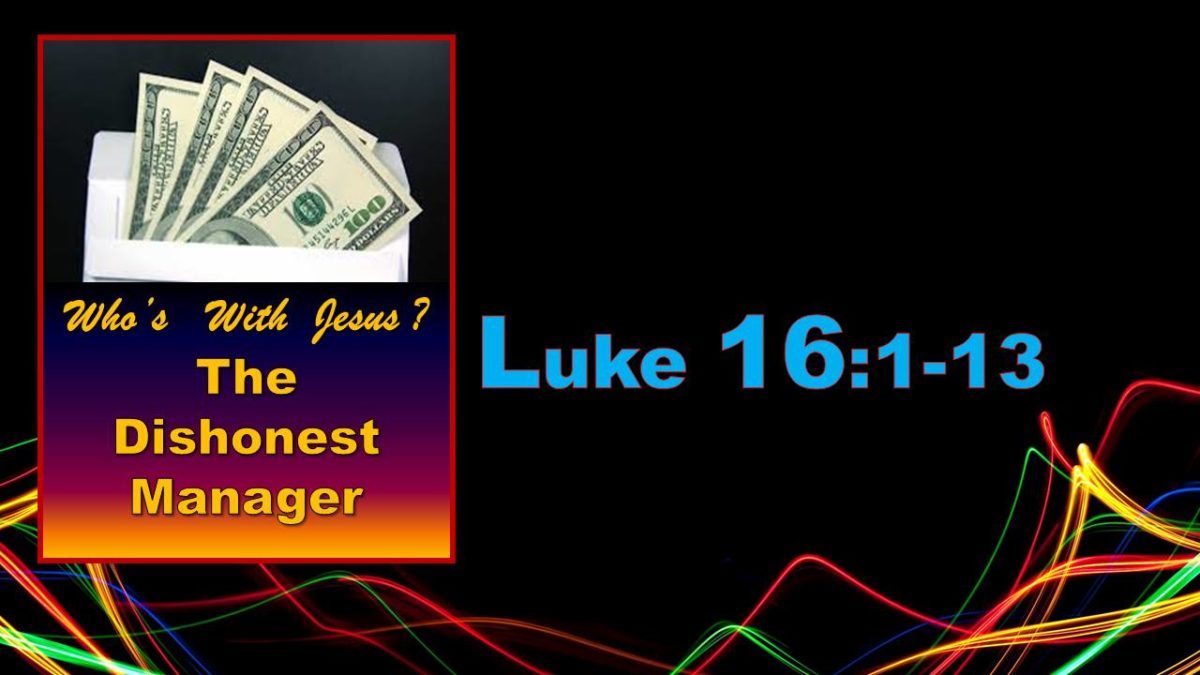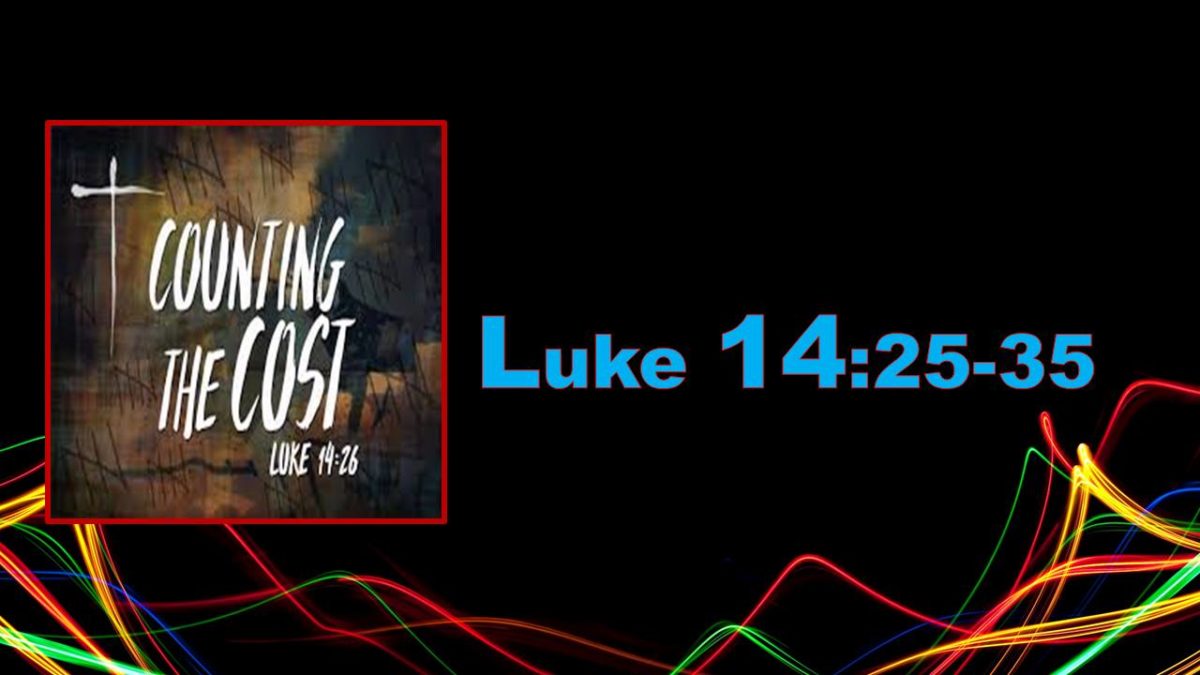I don’t think I’m alone in this, but I have a reoccurring dream. In my dream, I’m taking a class, but I’ve neglected to attend … for about ten weeks! Is it too late? I hold out hope, but I know in my dream-heart that it’s too late. Then, at that point, I usually wake up.
That’s a dream, but its warnings are real. I’m capable of missing the obvious, and being too late!
Luke 16.19-31, about the Rich Man and Lazarus, is among Jesus’ quirkiest parables, and among my favorites. Its landscape is the imaginative world of parable, but like other parabolic teachings of Jesus (think of The Good Samaritan), it’s points are hard and real and true.
The Parable of The Rich Man and Lazarus (:19-31). In the parable there is a Rich Man. His garments are purple, made from expensive dye. His underwear is fine linen. He’s rich all the way down! And, he spends his days feasting in his sumptuous palace.
There’s also a poor man named Lazarus. He’s commendable, not because he’s poor, but because he trusts in God. Crippled, Lazarus has been laid at the gates of the Rich Man’s house. Dogs lick his sores. He longs for food thrown from the Rich Man’s table. Following the popular religion of the day, those passing by would have passed judgment on Lazarus. Surely, he’s done something wrong, they would have thought. The Rich Man pays Lazarus no attention.
Then, both die. There’s a reversal. Lazarus goes to Abraham to await Messiah—the hope of every Jew in that day. This is the place of the righteous dead, associated with feasting and rest. The Rich Man dies too. Only, he find himself in Hades, the place of the unrighteous dead before Christ’s coming. (This is where the parable is so interesting, and where we have to be careful. Yes, the story is parable and imaginative, so we don’t want to press every detail to learn things about, say, the afterlife. But, we don’t want to dismiss its truths either. Jesus’ truths are hard and real and arresting.)
Now, in the parable, everything is changed. The Rich Man begs Abraham, three times: Send Lazarus to give me relief! … Send Lazarus to warn my family! … Send Lazarus to give my family a miracle! the doomed Rich Man pleads.
But, each time Abraham responds … It’s too late!
Lessons from The Rich Man and Lazarus.
- Like Lazarus those who trust Christ will be with Jesus at death. This is where the parable is realistic, and a point made elsewhere in the Bible: Truly, I say to you, today you will be with me in Paradise, Jesus told the thief on the cross (23.24). My desire is to depart and be with Christ, for that is far better, Paul concludes (Phil 1.23). This is true for those who depend on Jesus and His finished work. It’s true despite our earthly circumstances, whether we’re rich or poor. That I will be with Jesus instantly at death is true, no matter what I might lose in this life. That I will be with Jesus is true, no matter what I might give up to follow Jesus in this life. In a somber story, this is hopeful.
- Like the Rich Man those who die without trusting Christ will experience irreversible separation from God. Notice, there’s no cleansing of purgatory here. (That’s a medieval development.) There’s no hope, no more chances for the Rich Man who had every opportunity to respond.
- God reveals Himself in His Word, so that nobody can say they didn’t know. Therein is the “dig” the Rich Man is taking at God. He’s saying, I didn’t know! Ah, but he did. He had God’s Word with its strong commandments to care for the poor (Is 58.6-7, for example). Paying attention to brother Israelites would have demonstrated a heart yielded to God. Abraham’s final explanation hints at Christ’s future work: If they [the five brothers] do not hear Moses and the Prophets, neither will they be convinced if someone should rise from the dead (:31).
Those who “get” Jesus recognize their accountability to God from His Word and depend on Jesus … before it’s too late
That’s Jesus’ big point in telling the parable to those who thought they were right with God. And, like the points of a star shooting out from the center, there’s a number of applications coming off this main point. They deal with accountability to God, God’s Word, and our response in faith to Jesus:
Applications from The Rich Man and Lazarus.
- We need to recognize our accountability to God, especially regarding the poor. In doing this, we need to understand where we are in relation to Jesus and His cross. Before Jesus God’s people lived in the Nation of Israel. Responsibility to care for the the poor meant caring for brother-Israelites. But at the finished work of Jesus and the coming of the Spirit (Acts 2), God’s people became the international, multi-cultural gathering of those who follow Jesus.
So, we have verses like Acts 4.34: There was not a needy person among them, for as many as were owners of lands or houses sold them and brought the proceeds of what was sold and laid it at the apostles’ feet.
And we have Paul in Romans 15.25-26: At present, however, I am going to Jerusalem bringing aid to the saints. For Macedonia and Achaia have been pleased to make contribution for the poor among the saints at Jerusalem.
In other words, we need to concern ourselves for the plight of fellow Christians persecuted and impoverished because of their fellowship with Jesus. While this doesn’t save us, we’re accountable to care for these brothers and sisters, and that’s in part what faith in Jesus will look like.
- Also, we need to take God’s Word seriously. The Spirit works in conjunction with the Word. That’s how God communicates with us today. So, we need to be all about God’s Word—alone, and together in groups. God’s Word is enough. We don’t need extra signs and miracles to testify. We have the testimony of those who knew Jesus. And the Spirit works in our hearts to tell us, It’s true! … It’s all true!
- Finally, we need to respond to Jesus by faith. The prayer that the Rich Man in the parable didn’t pray is that great prayer God always answers: “Lord, show me my heart. And, show me Yourself. I want to know you.”
If the Rich Man had prayed such a prayer, he would have seen and cared for Lazarus. And, if we depend on Jesus by faith, we’ll recognize our accountability to God, value His Word, and respond to Jesus by faith.
And, we’ll do this … before it’s too late.
Here’s a few questions to get us talking with others:
- Like last week this is a difficult parable. What about it still seems perplexing or unclear?
- What excuses did the Rich Man make for not caring about Lazarus? How did this reveal His heart? How might such excuses reveal the condition of our hearts as well?
- What’s the connection to faith in Jesus and our response to the poor? Yes, we aren’t saved by caring for the poor, but there is a connection. What is it?
- What should we do as a result of this teaching by Jesus?
I hope this parable and these questions help you in considering the urgency of Jesus’ teaching. There’s lots of things worth pondering here. And, I hope you have a great week in the Lord as you do.



